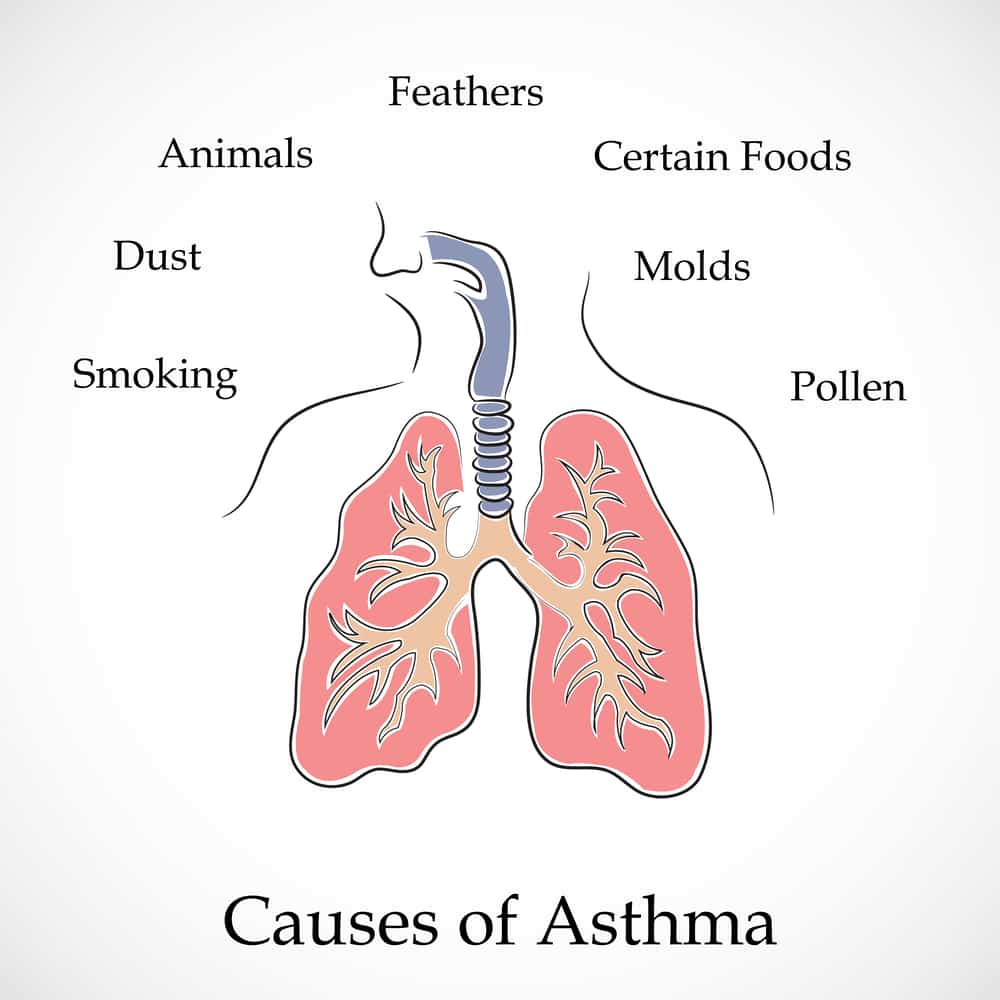What causes asthma?

We don’t know precisely what triggers asthma and why, but it is apparently a multifactorial disease. In other words, different elements contribute to the development of this health problem, and the trigger varies from one person to another.
Regardless of the origin of the disease, asthma triggers an immune response against normal tissues in the airways, and this mechanism is the same in all patients with asthma. The immune system is made to destroy invaders, and it is very active in the respiratory system because the airways are always in contact with bacteria and viruses. The role of these cells is to protect the body, but when the immune system responds aggressively and exaggeratedly to specific triggers, it also causes harm to healthy tissues. The trigger is known as an allergen, and the harmful reaction is known as allergy.
In the airways, this immune response causes inflammation of the walls, making them swell. As the walls of the airways swell, the available space for breathing air is reduced. Moreover, as a part of the response to expel the invaders, the airways start to produce mucus, which also takes up extra space in the airways, making them narrower still. This causes breathing problems by itself, but it is not the end of it. To top it off, the muscles around the airways start to contract. This is known as bronchospasm and has the same effect as in blood vessels: The lumen narrows further, and the air passage becomes severely compromised.
Altogether, airway edema, mucus, and bronchoconstriction cause airway obstruction. All of this is triggered by a substance known as Immunoglobulin E as a response to an allergen. After being exposed to the allergen, the airways start to swell in around 6 hours, but more immediate asthma attacks may also develop in some cases. When this happens, it is probably because the airway has remodeled, and this remodeling causes structural changes that predispose to sudden and very severe symptoms.
Another aspect of asthma that is important to understand is bronchial hyperresponsiveness. In simple words, the airways become predisposed to contract very rapidly, and bronchospasms appear shortly after being exposed to the trigger. Luckily, this predisposition can be reversed using bronchodilator drugs.
